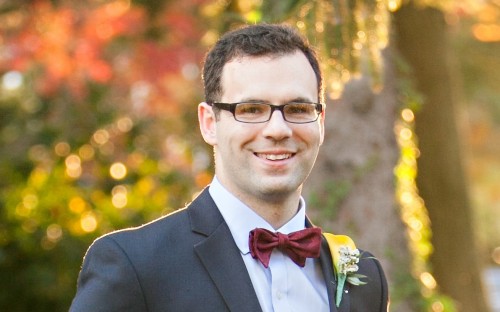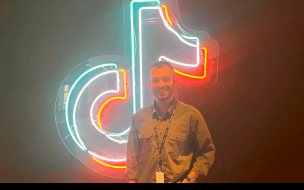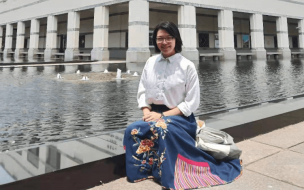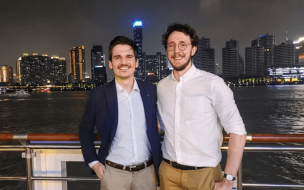David Coyne is a financial services professional with experience in private equity.
After completing the CPA certification and level I of the prestigious CFA (Chartered Financial Analyst) exams, David is keen to take his career further by attending business school.
Working in financial services means that David is well aware of the cost of attending top business schools. Besides Harvard, he is considering other US Ivy league university's business schools — including University of Pennsylvania’s Wharton, Cornell University’s Johnson and Dartmouth College’s Tuck.
He is confident an MBA will equip him with the right leadership and management skills to either rise to senior management within financial services or switch to consulting.
Why do you want to begin an MBA program?
Several years ago, complications from an electrical injury put my personal and professional life on hold. The pain of the injury and the uncertainty of recovery gave me a unique appreciation of and perspective on life. This injury fuelled a fire deep inside of me to pursue with vigour not just a career, but rather a life-long journey towards excellence in my field.
Why now? I have lofty aspirations and I am eager to get started on making those dreams a reality.
Since recovering just over two years ago, I have worked tirelessly on building the requisite leadership skills and knowledge to excel in b-school. I have restarted my career, become a CPA, passed CFA Level I, and founded a non-profit. It’s been hectic but so unbelievably rewarding. I can’t wait to apply that same level of dedication to my studies.
How will an MBA impact your career?
As an aspiring consultant, it is essential that I am able to evaluate organizational-wide problems, quantify and present solutions, and offer insight into the implementation of proposals.
One of the greatest benefits of an MBA is the opportunity to develop a general management perspective. I believe that I need to develop that management perspective further.
I believe that my time on campus will expose me to a diverse group of extremely bright and talented professionals. Working through demanding projects in this type of environment will not only better prepare me to lead a consulting team, but [I will] also gain insight into how others analyse and solve problems.
Which schools are you planning to apply to? What are the most important factors to you when choosing a business school?
It’s important to ask the following questions: how can this school help me develop the skill-sets I need to be a leader in my chosen field? Does an MBA from this school carry weight in my desired field?
Of all the factors that influence a decision, [job] placement is the probably the most important to me. An MBA education would be a bad investment if a degree from the school doesn’t carry weight in the job market or open up doors in my fields of interest. The placement statistics of the school indicate how realistic your intended post-MBA prospects [are].
I have been evaluating the job placement by industry and [by] average salary.
Of secondary importance to me is the strength of the academics. I think a good program should not only introduce students to relevant topics and studies, but also challenge them to work closely with and lead others, set goals for themselves and classmates, and force them to evaluate problems with a deeper analytical focus.
In my case, I believe that an academically rigorous quant/analytical-focused curriculum, with team-oriented projects and supplemental experiential learning opportunities, offer the ideal academic setting.
Lastly, I think it is extremely important to evaluate the culture of the school. I’ve been evaluating the involvement of students in professional and social clubs, [the] willingness of students and alumni to offer their time and insight throughout the process, and [I have been] gauging the enthusiasm that students and alumni have for the school.
The most rewarding part of this process so far has been visiting campuses, sitting in on classes, and talking to students and alums — the insight this offers cannot be understated.
Since I’ve begun this process, several schools have stood out — Booth, Fuqua, Harvard, Johnson, Tepper, Tuck and Wharton are all phenomenal schools that provide the best personal and professional development opportunites for me.
Between these schools, the only remaining question is: when can I start?
What has been the biggest challenge in the application process?
The most challenging (and rewarding) aspect of the process would have to be the personal reflection in essays and applications. I’ve found that you really need to evaluate who you are, what you want, and what you’re willing to give up to get it.
Knowing yourself and embracing your story makes the essays and applications genuine, which probably go a long way towards helping your application stand out amongst the crowd. You’ve got a compelling story — find out what it is and embrace it.
How did you prepare (or will start preparing) for the GMAT or the GRE?
I have found Manhattan GMAT to be an excellent option. Although my overall score was good, my quant score was about two points below where I would like it.
As a married man, I’ve also found that it is important to set aside time for my wife and to follow a deliberate schedule when it comes to studying. Also, we try to set up one special event each week. Whether it is dinner and a movie or a walk in the park, it is important that we don’t neglect one another.
How do you plan to fund your MBA?
My wife and I made it a point to plan for our MBA as though we would not be receiving any sort of fellowship or scholarship.
Our focus has been on saving as much as possible to help us not only make ends meet, but also to give us the flexibility to fly out for an interview, or take advantage of school treks and other learning opportunities.
Although we don’t have enough to fully fund the education ourselves, we have saved enough to fund about half. The remaining funds would have to come from student loans. This is why it is so important to us to evaluate post-MBA career statistics for each school. It is a big investment.
RECAPTHA :
36
64
d7
e7







